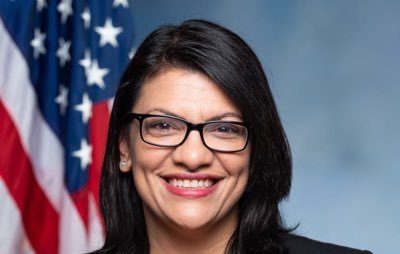The US House of Representatives voted to censure Rashida Tlaib, its sole Palestinian-American lawmaker, for her comments on the Israel-Hamas war. The resolution, supported by 22 members of her Democratic party, accused Tlaib of “promoting false narratives” regarding the October 7 Hamas attack in Israel, which she denied. Additionally, she was charged with seeking the “destruction of Israel.”
Who is Rashida Tlaib?
Rashida Tlaib, born on July 24, 1976, is an American politician and member of the Democratic Party who has emerged as a prominent figure in national politics. Raised in Detroit, Michigan, to Palestinian immigrant parents, Tlaib has a background deeply rooted in both her Palestinian heritage and her local community.
Also Read: Where is Bisan, Palestinian journalist documenting life amidst war in Gaza?
Tlaib made history in the 2018 midterm elections by becoming one of the first two Muslim women elected to the United States Congress, along with Ilhan Omar. Representing Michigan’s 13th congressional district, which includes parts of Detroit and its suburbs, Tlaib quickly gained attention for her progressive stance on various issues.
Before entering national politics, Tlaib served in the Michigan House of Representatives from 2009 to 2014, where she built a reputation for her advocacy on social and economic justice issues. She was known for her commitment to constituents and her unapologetic approach to challenging established norms.
One of the key aspects of Tlaib’s political identity is her vocal criticism of the Trump administration and its policies, particularly on issues such as immigration and racial justice. She has been an advocate for progressive policies, including the Green New Deal, Medicare for All, and criminal justice reform.
Also Read: Who is Abdullah Saleh? Brooklyn graduate disregards ‘Bozo’ hostages in Gaza by Hamas
Rashida Tlaib is also recognized for her strong support of Palestinian rights, drawing on her personal background and experiences. Her stance on the Israeli-Palestinian conflict has sparked both praise and controversy, contributing to the broader discussions surrounding U.S. foreign policy in the Middle East.
Tlaib’s presence in Congress has been marked by her commitment to amplifying the voices of marginalized communities and challenging systemic inequalities. Her authenticity, passion, and fearlessness in addressing complex issues have solidified her as a notable figure within the progressive wing of the Democratic Party and a trailblazer for Muslim women in American politics.







